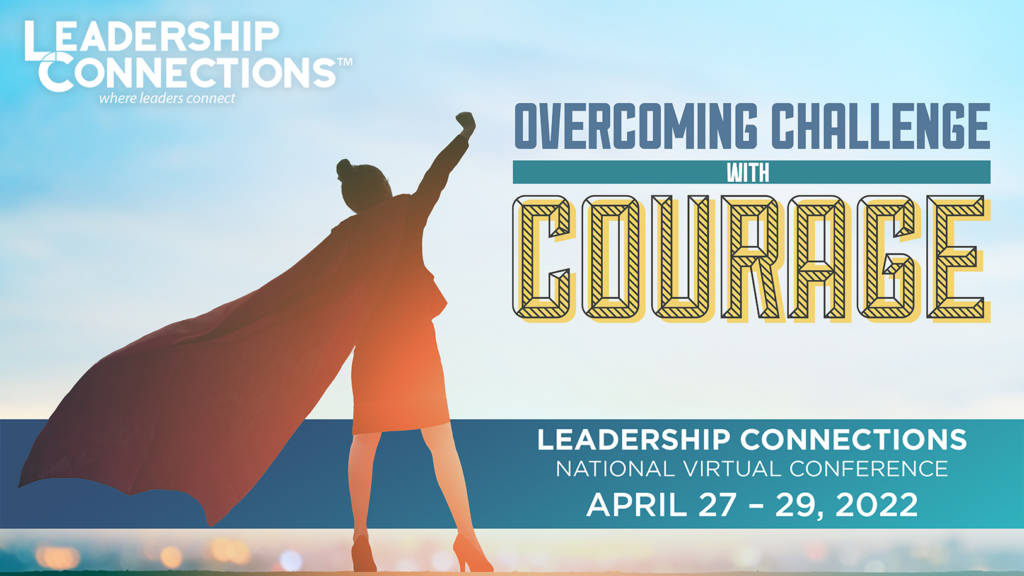BY The McCormick Center for Early Childhood Leadership | October 26, 2021

Have you ever wondered what it would be like to join in authentic discussions with your peers about the challenges you face as an early childhood leader? Are you looking for effective strategies to inspire you and your staff as you adjust to demands that have changed dramatically since 2020? We have been talking with many early childhood leaders to find ways to overcome the challenges we are encountering. We are finding national experts to present their ideas and innovations, address social justice and equity issues, and create a milieu of camaraderie and collaboration for early childhood leaders. We all need this more than ever.
These innovative and experienced early childhood leaders will be presenters at our 21 st
national conference, April 27-29, 2022. Many conferences exist across the country, but Leadership Connections National Conference is the only national conference with a singular focus on the needs of early childhood administrators.
National Conference is the only national conference with a singular focus on the needs of early childhood administrators.
Last year, we delivered our very first virtual conference, which allowed us to deliver an affordable and vital learning experience to early childhood administrators from the comfort and safety of their own homes or workplaces. The more than 750 attendees were encouraged to set aside the conference dates to attend live sessions, engage with others, and connect with sponsors. We offered two full-day extended pre-conference sessions with more than 100 participants. After the conference, participants were able to view the sessions they registered for and were unable to attend. All keynote and break-out sessions were available to registered attendees for 12 months after the conference ended.
Leadership Connections has a rich history. Our first conference in 2000 was a forum for directors of early childhood programs to be inspired by leaders from various fields and disciplines, including management, organizational development, communications, social work, medicine, and law. It provided an innovative way for leaders to learn creative solutions to their challenges in delivering high-quality early childhood services. It was a time of transition into the digital world; leaders experienced new technologies in training design and delivery.
The first Leadership Connections allowed participants to establish new friendships and renew old acquaintances in the field of early childhood, and be inspired by success stories from directors from diverse early childhood settings. There was opportunity for leaders to showcase their ideas and innovations in “best practices” sessions.
The most important part about the conference in 2000 was that both the format and content of the conference inspired leaders to think about their work in new and different ways. It was a conference developed to be distinctly different in format and content from other conferences that early childhood directors and other leaders typically attend. It was a chance to reflect and then move forward, knowing that early childhood leaders from around the country could relate to the work they were doing and were there to support them.
The initial application for a grant to support the first Leadership Connections conference contained the following goals:
- Increase opportunities for directors to exchange information and resources with one another.
- Increase directors’ level of knowledge and skill in program management.
- Increase opportunities for directors to engage in hands-on, interactive uses of innovative technologies.
- Increase directors’ awareness of early childhood research and current advocacy issues.
- Increase leadership development opportunities for people of color.
As you read through these, you might see that the need for these opportunities and learning experiences is still relevant more than twenty years later.
We are excited to host our 21st annual conference from April 27 – April 29, 2022. This conference will empower early childhood administrators and leaders through professional learning focused on the McCormick Center’s framework of Whole Leadership – administrative, pedagogical, and leadership essentials. We will also have an additional pre-conference day on April 26, 2022, with a selection of four extended workshops.
Our keynote speakers for the 2022 conference are Amy Leneker, a Leadership Consultant and a Certified Dare to Lead Facilitator; Dorri McWhorter, the Executive Director of YMCA of Metropolitan Chicago, known for her leadership in community organizations during times of crisis; and Albert Wat, the Senior Policy Director at the Alliance for Early Success, a leader in early childhood policy and reform initiatives. We will have a carefully selected group of early childhood presentations to meet the needs of the leaders who attend the conference.
Facilitator; Dorri McWhorter, the Executive Director of YMCA of Metropolitan Chicago, known for her leadership in community organizations during times of crisis; and Albert Wat, the Senior Policy Director at the Alliance for Early Success, a leader in early childhood policy and reform initiatives. We will have a carefully selected group of early childhood presentations to meet the needs of the leaders who attend the conference.
The vision of the McCormick Center for Early Childhood Leadership to empower leaders and advance the field to promote excellence in early childhood education is embedded in Leadership Connections. We strive to be an important catalyst for change as we implement initiatives that strengthen the leadership capacity of early childhood educators. The conference provides early childhood leaders with opportunities to attend workshop sessions relevant to the complex role of leadership, network with professionals who share similar trials and triumphs, and be inspired by influential specialists in our field.
We hope you will join us at our Leadership Connections National Conference on April 27 – 29, 2022.





